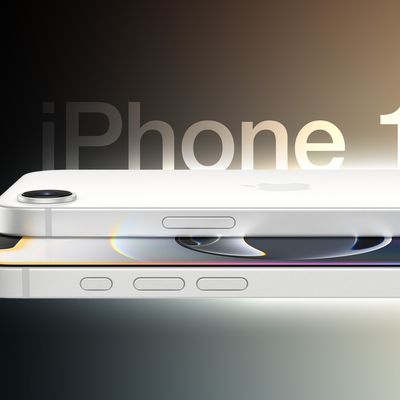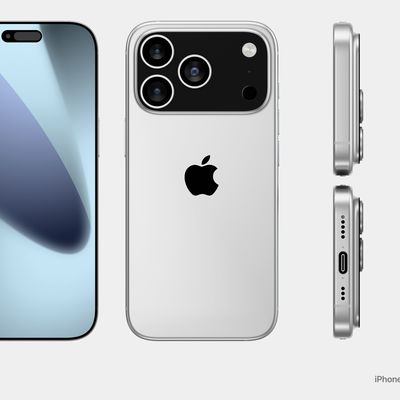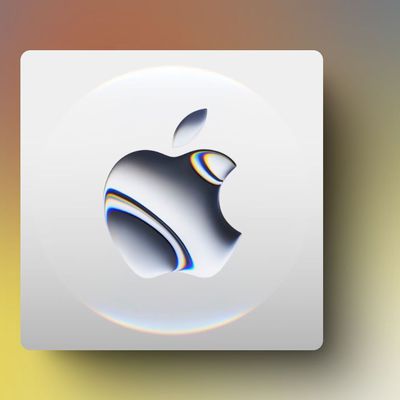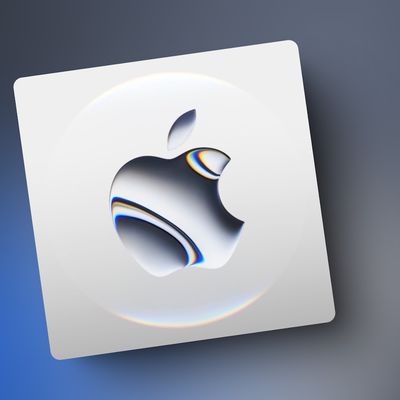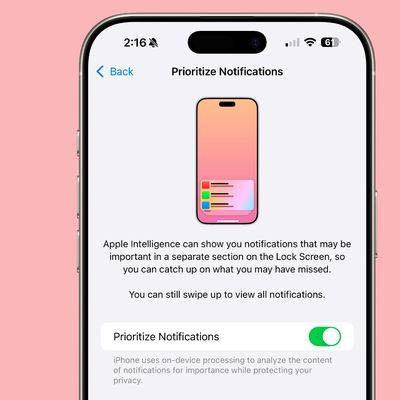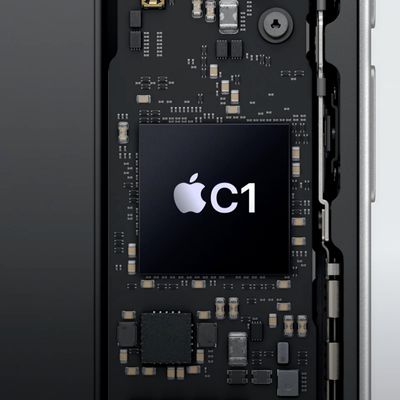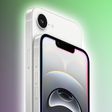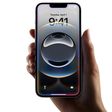Apple SIM Included With iPad for Customer Convenience, but iPhone Not Likely to Join In
Apple had the consumer in mind when it added a multi-carrier SIM card to its new iPads, said Apple vice president of iPhone, iPod and iOS product marketing Greg Joswiak in a recent Re/code interview (via Fierce Wireless). But that motivation does not mean the Apple SIM will be making its way to the iPhone any time soon, as Joswiak noted most consumers go directly to their carriers to buy iPhones, while the iPad more often is sold through Apple's retail channels.
"It's about the customer experience," he said during an appearance here at Re/code's Code/Mobile conference. "We ultimately don't know who you are going to use as the carrier, [and] we want to make it as easy as possible."
Joswiak said Apple has not discussed putting the Apple SIM into iPhones, but said that because of the way most customers buy an iPhone--through a carrier directly--the Apple SIM is not as well suited. "I don't think you're going to go to the Verizon store and say, 'Can you hook me up with AT&T?,'" he said.
With most iPhone customers committed to their carriers for a significant period of time, either through contracts subsidizing the phone cost or through payment plans, multi-carrier SIM cards make less sense for iPhones.
Apple's new universal SIM in theory allows customers to activate with one carrier and then switch to another carrier as needed, but there are some limitations. The Apple SIM is currently only compatible with AT&T, T-Mobile, Sprint and UK carrier EE. Verizon confirmed that is not adopting Apple's new SIM, instead requiring customers to activate with a Verizon-specific SIM.
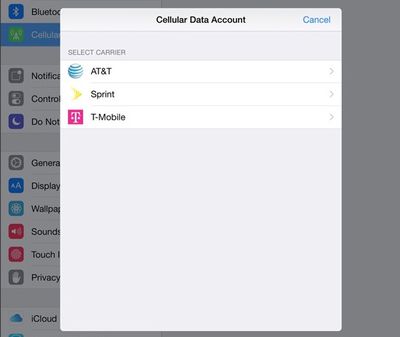
In addition, while AT&T is listed as a compatible carrier, the provider is not fully supporting all the features of the SIM. Apple and AT&T have confirmed the carrier is not allowing its customers to switch once the Apple SIM has been activated on AT&T's network, instead opting to lock the SIM to its network following activation. Customers who activate service on AT&T will thus have to purchase a new SIM if they want to use their tablet with another carrier.
Apple introduced the new iPad Air 2 and Retina iPad mini 3 earlier this month with sales beginning last week. Both tablets feature a universal SIM, Touch ID, and storage options of 16, 64 and 128GB. The iPad Air 2 also includes a new A8X processor, antireflective display and 2GB of RAM. The iPad Air 2 retails at a starting price of $499, while the iPad mini 3 costs $399 for the base model.
Popular Stories
Apple today introduced the iPhone 16e, its newest entry-level smartphone. The device succeeds the third-generation iPhone SE, which has now been discontinued.
The iPhone 16e features a larger 6.1-inch OLED display, up from a 4.7-inch LCD on the iPhone SE. The display has a notch for Face ID, and this means that Apple no longer sells any iPhones with a Touch ID fingerprint button, marking the ...
Over the years, Apple has switched from an aluminum frame to a stainless steel frame to a titanium frame for its highest-end iPhones. And now, it has been rumored that Apple will go back to using aluminum for three out of four iPhone 17 models.
In an investor note with research firm GF Securities, obtained by MacRumors this week, Apple supply chain analyst Jeff Pu said the iPhone 17, iPhone...
Now that Apple has announced its new more affordable iPhone 16e, our thoughts turn to what else we are expecting from the company this spring.
There are three product categories that we are definitely expecting to get upgraded before spring has ended. Keep reading to learn what they are. If we're lucky, Apple might make a surprise announcement about a completely new product category.
M4...
Wednesday February 19, 2025 11:38 am PST by
Juli CloverFollowing the launch of the iPhone 16e, Apple updated its iOS 18, iPadOS 18, and macOS Sequoia pages to give a narrower timeline on when the next updates are set to launch.
All three pages now state that new Apple Intelligence features and languages will launch in early April, an update from the more broader April timeframe that Apple provided before. The next major point updates will be iOS ...
In a social media post today, Apple CEO Tim Cook teased an upcoming "launch" of some kind scheduled for Wednesday, February 19.
"Get ready to meet the newest member of the family," he said, with an #AppleLaunch hashtag.
The post includes a short video with an animated Apple logo inside a circle.
Cook did not provide an exact time for the launch, or share any other specific details, so...
Apple finally released the first beta of iOS 18.4 to developers for testing purposes, and while the beta is lacking some of the Apple Intelligence features we were hoping for, there are some notable new additions.
Subscribe to the MacRumors YouTube channel for more videos.
Priority Notifications - Apple Intelligence
There is a new Priority Notifications feature that can show you your most...
Apple today announced its first custom cellular modem with the name "C1," debuting in the all-new iPhone 16e.
The new modem contributes to the iPhone 16e's power efficiency, giving it the longest battery life of any iPhone with a 6.1-inch display, such as the iPhone 15 and iPhone 16.
Expanding the benefits of Apple silicon, C1 is the first modem designed by Apple and the most...
Apple has confirmed that its custom-designed C1 modem in the iPhone 16e has nothing to do with the device's lack of MagSafe support, according to Macworld.
Following the launch of the iPhone 16e, there was some speculation online about how MagSafe magnets might have interfered with the C1 modem's cellular connectivity performance, and this was considered to be a potential reason for the...



